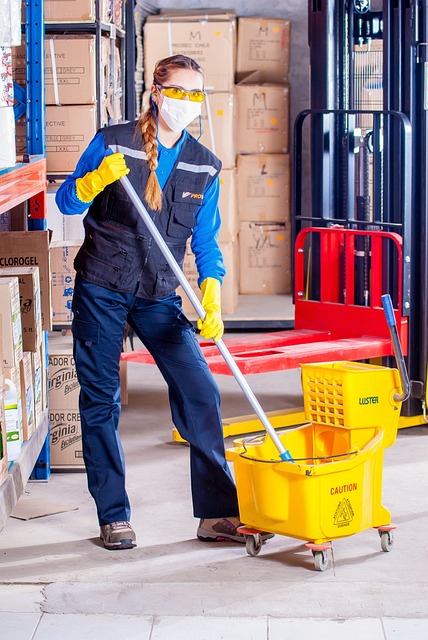Recent Law Updates for Home Service Professionals
Recent Law Updates for Home Service Professionals
The home services industry is constantly evolving, with new technologies, techniques, and, importantly, regulations emerging all the time. For professionals like plumbers, electricians, roofers, and more, staying abreast of the latest legal requirements is crucial not only for business success but also for ensuring the safety and satisfaction of their customers.
This article dives into some of the significant recent law updates impacting various home service sectors, highlighting key changes and providing resources for further information.
1. Energy Efficiency and Sustainability
A major trend across the home services sector is a growing emphasis on energy efficiency and sustainability. This is reflected in updated building codes and regulations at both national and local levels.
-
HVAC: The Department of Energy (DOE) has recently updated its energy efficiency standards for HVAC systems. Technicians need to be aware of these new standards when installing or servicing equipment. Furthermore, many states offer incentives and rebates for homeowners who install high-efficiency HVAC systems, requiring contractors to be knowledgeable about these programs.
- Resource: DOE website for HVAC efficiency standards.
-
Plumbing: Low-flow fixtures and water-efficient appliances are becoming increasingly common. Plumbers must be familiar with the installation and maintenance of these products to ensure compliance with local plumbing codes. Some areas have even implemented stricter regulations on water usage, particularly in drought-prone regions.
- Resource: EPA WaterSense program website.
-
Roofing: Cool roof technology, which involves using reflective materials to reduce heat absorption, is gaining popularity. Roofers should be aware of local building codes and incentives related to cool roofs and be able to advise homeowners on suitable options.
- Resource: Cool Roof Rating Council website.
2. Safety Regulations
Safety is paramount in the home services industry, and recent updates to safety regulations reflect this priority.
-
Electrical: The National Electrical Code (NEC) is periodically updated to incorporate the latest safety standards. Electricians need to stay informed about these changes, which may involve new wiring methods, grounding requirements, and safety protocols for working with electrical equipment.
- Resource: National Fire Protection Association (NFPA) website for NEC updates.
-
Plumbing: Regulations related to lead-free plumbing and the prevention of Legionella bacteria in water systems are becoming more stringent. Plumbers need to be aware of these regulations and ensure their work complies with the latest safety standards.
- Resource: EPA website for information on lead-free plumbing and Legionella.
-
General Contractor Safety: OSHA (Occupational Safety and Health Administration) regulations are constantly being reviewed and updated. Contractors need to be aware of the latest safety requirements for their workers, including fall protection, personal protective equipment (PPE), and hazard communication.
- Resource: OSHA website for construction industry regulations.
3. Licensing and Certification
Many home service professions require licensing or certification to ensure that practitioners meet minimum competency standards. Recent updates may include:
-
Continuing Education: Many states now require licensed professionals to complete continuing education courses to maintain their licenses. This ensures that they stay up-to-date with the latest industry practices and regulations.
-
Reciprocity Agreements: Some states have entered into reciprocity agreements, allowing licensed professionals from one state to obtain a license in another state more easily. This can be beneficial for contractors who work in multiple states.
-
Specialized Certifications: New certifications are emerging for specialized areas within the home services industry, such as green building, smart home technology, and renewable energy systems. Obtaining these certifications can demonstrate expertise and provide a competitive advantage.
4. Digital Tools and Data Privacy
The increasing use of digital tools in the home services industry raises new legal considerations.
-
Data Privacy: Contractors who collect customer data, such as names, addresses, and payment information, need to comply with data privacy laws like the California Consumer Privacy Act (CCPA) and the General Data Protection Regulation (GDPR). This may involve implementing data security measures and providing customers with clear privacy policies.
-
Electronic Contracts and Signatures: The use of electronic contracts and signatures is becoming more common. Contractors need to be aware of the legal requirements for electronic signatures and ensure that their contracts are valid and enforceable.
5. Accessibility and Universal Design
There is a growing focus on making homes more accessible for people with disabilities.
-
Building Codes: Building codes are being updated to include more stringent requirements for accessibility features in new homes and renovations. This may involve wider doorways, accessible bathrooms, and ramps. Contractors need to be familiar with these requirements and ensure their work complies with accessibility standards.
-
Aging-in-Place: The aging population is driving demand for home modifications that allow seniors to age in place safely and comfortably. Contractors who specialize in aging-in-place modifications need to be knowledgeable about relevant building codes and best practices for universal design.
Staying Informed
Keeping up with these evolving laws and regulations can be challenging. Here are some tips for home service professionals:
- Join industry associations: Professional organizations often provide updates on legal changes and offer continuing education opportunities.
- Consult with legal professionals: If you have questions about specific legal requirements, it’s advisable to seek advice from a qualified attorney.
- Check with local authorities: Building codes and other regulations can vary at the local level. Contact your city or county building department for information on local requirements.
- Attend industry events: Trade shows and conferences can be valuable sources of information on new technologies, best practices, and legal updates.
By staying informed about the latest law updates, home service professionals can protect their businesses, ensure the safety of their workers and customers, and provide high-quality services that meet the evolving needs of homeowne
editor's pick
latest video
news via inbox
Nulla turp dis cursus. Integer liberos euismod pretium faucibua




